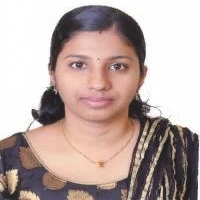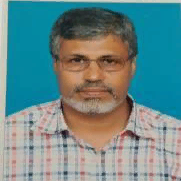International Journal of Education and Management Engineering (IJEME)
IJEME Vol. 7, No. 6, 8 Nov. 2017
Cover page and Table of Contents: PDF (size: 433KB)
Developing an Intelligent Question Answering System
Full Text (PDF, 433KB), PP.50-61
Views: 0 Downloads: 0
Author(s)
Index Terms
Question Answering System, Artificial intelligence, Information Extraction
Abstract
The goal of an intelligent answering system is that the system can respond to questions automatically. For developing such kind of system, it should be able to answer, and store these questions along with their answers. Our intelligent QA (iQA) system for Arabic language will be growing automatically when users ask new questions and the system will be accumulating these new question-answer pairs in its database. This will speed up the processing when the same question(even if it is in different syntactical structure but semantically same) is being asked again in the future. The source of knowledge of our system is the World Wide Web(WWW). The system can also understand and respond to more sophisticated questions that need a kind of temporal inference.
Cite This Paper
Waheeb Ahmed, Ajusha Dasan, Babu Anto P,"Developing an Intelligent Question Answering System", International Journal of Education and Management Engineering(IJEME), Vol.7, No.6, pp.50-61, 2017. DOI: 10.5815/ijeme.2017.06.06
Reference
[1]Deepa Yogish, Manjunath T. N., and Ravindra S. Hegadi, “A Survey of Intelligent Question Answering System Using NLP and Information Retrieval Techniques”, International Journal of Advanced Research in Computer and Communication Engineering, Vol. 5, pp. 536-540, 2016.
[2]Sanada M. Harabagiu, Steven J. Maiorano, and Marius A. Pasca, “Open-Domain Textual Question Answering Techniques”, Natural Language Engineering Journal, Vol. 9, pp. 231 - 267, 2003.
[3]Aniket D Kadam , Shashank D. Joshi , Sachin V. Shinde , and Sampat P. Medhane, “Question Answering Search engine short review and road-map to future QA Search Engine”, In Proceedings of the International Conference on Electrical, Electronics, Signals, Communication and Optimization (EESCO), pp. 1-8, 2015.
[4]Tiansi Dong, Ulrich Furbach, Ingo Glockner and Bjorn Pelzer, “A Natural Language Question Answering System as a Participant in Human Q&A Portals”, In Proceedings of the Twenty-Second International Joint Conference on Artificial Intelligence IJCAI'11, Vol. 3, pp. 2430-2435, 2011.
[5]Ghassan Kanaan, Awni Hammouri, Riyad Al-Shalabi and Majdi Swalha, “A New Question Answering System for the Arabic Language”, American Journal of Applied Sciences, Vol. 6, pp. 797-805, 2009.
[6]Wissal Brini, Mariem Ellouze , Slim Mesfar and Lamia Hadrich Belguith, “An Arabic question-answering system for factoid questions”, In Proceedings of International Conference on Natural Language Processing and Knowledge Engineering(NLP-KE 2009), 2009.
[7]Bassam Hammo, Hani Abu-Salem, Steven Lytinen, “QARAB: a question answering system to support the Arabic language”, In Proceedings of the ACL-02 workshop on Computational approaches to semitic languages SEMITIC '02, pp. 1-11, 2002.
[8]Sman Bekhti, and Maryam Al-Harbi, “AQuASys: A Question-Answering System For Arabic”, International Journal of Academic Research, Vol. 3, pp.45-54, 2011.
[9]Heba Kurdi, Sara Alkhaider, and Nada Alfaifi, “Development and Evaluation of a Web Based Question Answering System for Arabic Language”, Fourth International conference on Computer Science & Information Technology, pp. 187–202, 2014.
[10]Shouning Qu, Bing Zhang, Xinsheng Yu and Qin Wang, “The Development and Application of Chinese Intelligent Question Answering System Based on J2EE Technology”, In Proceedings of the 1st international conference on Forensic applications and techniques in telecommunications, information, and multimedia and workshop e-Forensics '08, No. 41, pp. 254-259, 2008.
[11]Peter Clark, Vinay Chaudhri, Sunil Mishra, Jerome Thomere, Ken Barker and Bruce Porter, “Enabling Domain Experts to Convey Questions to a Machine: A Modified, Template-Based Approach”, In Proceedings of Second International Conference on Knowledge Capture k-Cap’03, pp. 13-19, 2003.
[12]Ganesh Ramakrishnan, Soumen Chakrabarti, Deepa Paranjpe and Pushpak Bhattacharyya, “Is Question Answering an Acquired Skill?”, In Proceedings of the 13th international conference on World Wide Web WWW '04, pp. 111-120, 2004.
[13]Denis Savenkov, and Eugene Agichtein, “When a Knowledge Base Is Not Enough: Question Answering over Knowledge Bases with External Text Data”, In Proceedings of the 39th International ACM SIGIR conference on Research and Development in Information Retrieval SIGIR '16, pp. 235-244, 2016.
[14]Eriks Sneiders, “Automated FAQ Answering with Question-Specific Knowledge Representation for Web Self-Service”, In Proceedings of the 2nd conference on Human System Interactions (HSI'09), pp. 295-302, 2009.
[15]Erfan Najmi, Khayyam Hashmi, Fayez Khazalah and Zaki Malik, “Intelligent Semantic Question Answering System”, In Proceedings of the IEEE International Conference on Cybernetics (CYBCONF), pp. 255-260, 2013.
[16]Faheem Abbas, Muhammad Kamran Malik, Muhammad Umair Rashid and Rizwan Zafar, “WikiQA – A Question Answering System on Wikipedia using Freebase, DBpedia and Infobox”, In Proceedings of the sixth conference on Innovative Computing Technology(INTECH2016), pp. 185-193, 2016.
[17]Huiying Li and Feifei Xu, “Question Answering with DBpedia Based on the Dependency Parser and Entity centric Index”, International Conference on Computational Intelligence and Applications, pp. 41-45, 2016.
[18]Bolanle Ojokoh, Tobore Igbe, Ayobami Araoye, and Friday Ameh, “Question Identification and Classification on an Academic Question Answering Site”, In Proceedings of the 16th ACM/IEEE-CS on Joint Conference on Digital Libraries(JCDL '16), pp. 223-224, 2016.
[19]Hani Al Chalabi, Santosh Ray, and Khaled Shaalan, “Question Classification for Arabic Question Answering Systems”, In Proceedings of the international Conference on Information and Communication Technology(ICTRC2015), pp. 310-313, 2015.
[20]Zhao Lu, Yu-Ru Lin, Qing Zhang, and Mengwei Chen, “Classifying Questions into Fine-grained Categories using Topic Enriching”, IEEE 17th International Conference on Information Reuse and Integration, pp. 166-174, 2016.
[21]Fu Jinghong, Zhang Chunying, Wang Jing, and Tian Fang, “A Weighted Relational Classification Algorithm Based on Rough Set”, I.J. Education and Management Engineering, 20-25, 2013.
[22]Xin Li and Dan Roth, “Learning Question Classifiers: The Role of Semantic Information”, Natural Language Engineering Journal, Vol. 12, pp. 229 - 249, 2006.
[23]Waheeb Ahmed, and Babu Anto, “Classification of Arabic Questions Using Multinomial Naïve Bayes And Support Vector Machines”, International Journal of Latest Trends In Engineering And Technology, pp. 82-86, special issue(SACAIM), 2016.
[24]Waheeb Ahmed, and Babu Anto P., “Question Focus Recognition in Question Answering Systems”, International Journal of Advanced Research in Computer and Communication Engineering(IJARCCE), Vol. 5, pp. 25-28, 2016.
[25]R. Al-Shalabi , G. Kanaan, J.M. Jaam, A. Hasnah and E. Hilat, “Stop-word removal algorithm for Arabic language”, In Proceedings of the International Conference on Information and Communication Technologies: From Theory to Application, 2004.
[26]Jonathan J. Webster, and Chunyu Kit,” Tokenization as The initial phase in NLP”, In Proceedings of the 14th conference on Computational linguistics(COLING-92), Vol. 4, pp. 1106-1110, 1992.
[27]Khoja Stemmer, http://zeus.cs.pacificu.edu/shereen/ research.htm, Last Visited- December, 2016.
[28]Hani Al-Chalabi , Santosh Ray, and Khaled Shaalan, “Semantic Based Query Expansion for Arabic Question Answering Systems”, In Proceedings of the First International Conference on Arabic Computational Linguistics (ACLing), pp. 127-132, 2015.
[29]Naushad UzZaman , Hector Llorens, and James Allen, “Evaluating Temporal Information Understanding with Temporal Question Answering”, In Proceedings of the IEEE Sixth International Conference on Semantic Computing (ICSC), pp. 79-82 ,2012.
[30]S. Harabagiu, and C. A. Bejan, “Question answering based on temporal inference.”, In proceedings of the AAAI-2005 Workshop on Inference for Textual Question Answering, 2005.
[31]Sazianti Mohd Saad, and Siti Sakira Kamarudin, “Comparative Analysis of Similarity Measures for Sentence Level Semantic Measurement of Text”, In Proceedings of the IEEE International Conference on Control System, Computing and Engineering (ICCSCE), pp. 90-94 ,2013.
[32]Issa Atoum, Ahmed Otoom and Narayanan Kulathuramaiyer, “A Comprehensive Comparative Study of Word and Sentence Similarity Measures”, International Journal of Computer Applications, Vol. 135, No.1, pp. 10-17, 2016.
[33]E. Voorhees,” Overview of the TREC 2001 question answering track,” In Proceedings of the 10th Text Retrieval Conference(TREC10), pp. 42–52, 2001.


